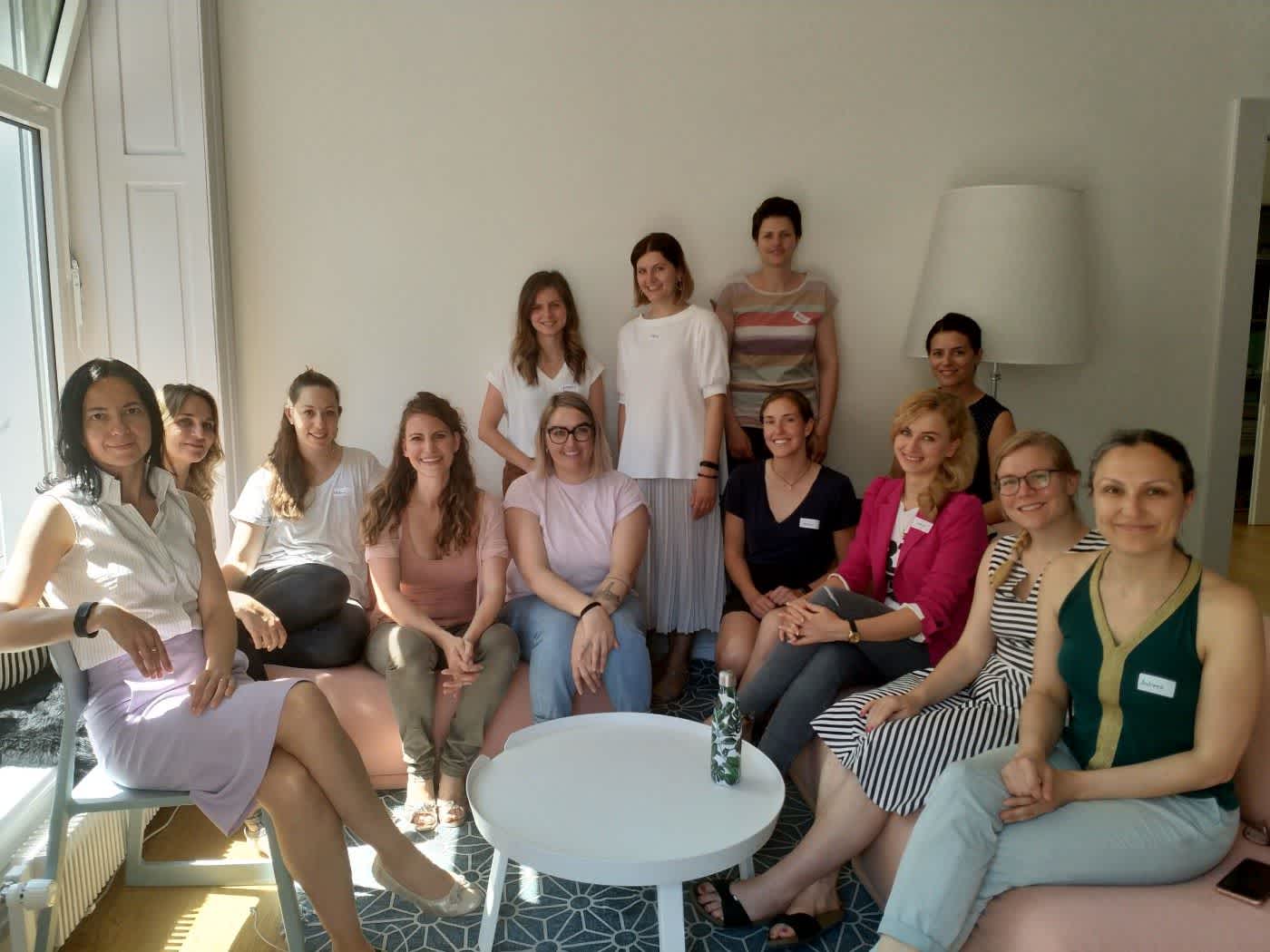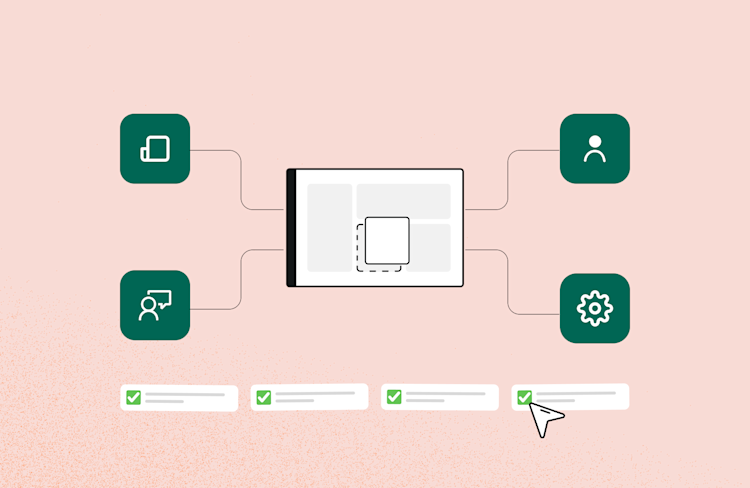"Everyone is working in product - we are all Product people"
Whereby's Head of Culture sat down with Tanja Lau to talk about Product Academy, and how they’re educating the next generation of product managers, and bringing more diversity through the "Women in Product" program.
You recently launched Product Academy; what do you offer and why did you start this new venture?
Working as product manager is one of the most challenging jobs I know of. From user experience to business analysis, from prototyping to writing great specs, from being a servant leader for your team to creating a great product vision: there are so many skills involved that we product people are never done learning.
That is why Product Academy is offering a great variety of very condensed workshops taught by international product leaders from the likes of Google, Zalando, Booking.com. You can select the ones that will help you in your current situation and combine them à-la-carte. We use a powerful combination of homework, workshops, and coaching; in combination with what you already know to boost your learning curve.
In the end, my vision is to empower product people to create truly customer-centric and learning organizations.
I notice you said “product people”, not “product managers“, why is that?
Product management comes in many shapes. I’ve worked as a co-founder of various start-ups, and as event and marketing manager; in both of these positions I was working in product. You might not have the title, “product manager”, but chances are you are working in product too. As long as a company thinks of “product management” as just a department, there is still a long way to go. I have seen great product teams not being able to deliver as much value as they could have, simply because they were boxed in in an organization that did not share a healthy and modern product mindset. In the end, everyone is working in product: your customer service, your sales department, your CEO, as well as the people at your front desk. They are all shaping the customer experience and your brand to some extend. Once we realize this, we can move past thinking in silos and start creating a common product vision.

So if everyone is working in product, why do we still need product managers?
Imagine everyone running to the developers individually without any form of distilling, analyzing and orchestrating their requests. You would soon be losing your best developers and eventually, your customers due to confusion and frustration building up. In most companies it totally makes sense to install the roles of product manager and product owner, since there are specific responsibilities attached to them which will contribute to establishing a smooth and customer-focused product development flow. However in almost all companies I worked with, to some degree there is confusion around the role of product managers as well as adjacent roles. Mostly they stem from a lack of clarity regarding the company vision and goals, a decision making process that is not clear to everyone, and/or a ego-centric culture that is focused on making individuals shine instead of encouraging joined product discovery and experimentation.
As long as this situation prevails, a lot of time and energy is lost in friction and daily battles — and these resources could be invested in your product instead.
What is the one skill you think product people need most these days?
There isn’t really one single skill that sticks out. It highly depends on the way your product role is shaped in your particular set-up. But if I have to choose one skill that I am particularly passionate about it would be hypothesis-driven product management. Every great product starts with one or more smart and sometimes bold assumptions. The art is taking those assumptions, and turning them into hypothesis so they are testable and actionable. However, a very analytical and hypothesis-driven approach to product management also needs to be counterbalanced by a high level of empathy for the user and other stakeholders in order to unfold its full potential.
Other high-demand topics in our individual coaching sessions are: creating and working with a product vision, roadmapping and communicating with stakeholders at different levels. However, everyone has their own learning journey and needs a different way of coaching in order to maximize their learning curve.
Is this why you believe in a more tailored learning experience?
There are so many different ways to end up in product management. This makes it very difficult to create standardized product management courses that do not have some level of redundancy or lack content that would be beneficial to your learning experience. I believe we need a new form of continuous learning in addition to attending university courses or annual conferences. I, for instance, studied Comparative Literature, Business Administration and Management. Others might come in with valuable know-how in UX or tech. Every product person comes with their very own backpack of experience.
Highly standardized courses are usually not able to take that into consideration. As a result, students often pay for know-how they already have. And many people are not even able to afford course programs that might cost several thousand francs. This is why we condensed the curriculum into several short course units that can be booked individually or combined into tailored course programs. That way, they are also more affordable and chances are high that you can convince your boss to sponsor them.
Generally I believe in taking responsibility for your individual learning journey and actively shaping it. I highly recommend creating a personal learning backlog, including skills you would like to learn, mentors you would love to learn from, experiences you think could make you grow. This is much easier when you know your personal why and where you are headed in your career and life.
In May, you launched a pro-bono mentoring program called “Women in Product“. Can you tell us more about it?

Gladly! I strongly believe in diversity as key factor for successful (product) teams. However, women are still very underrepresented in tech. That is why I wanted my very first course program at Product Academy to be a pet project focused on encouraging women to enter the product space from a related role (like UX or tech) or to speed up their learning curve. From a pool of many wonderful applicants, we selected 12 women who currently get to attend 5 workshops within 5 months. They also get their personal mentor as sparring partner for their learnings as well as a coach who is helping them reflect on their career and current challenges: from how to deal with difficult stakeholders to how to achieve a satisfying work-life balance.
I am so happy that so many great product leaders agreed to donate their time for this program, amongst them also appear.in CEO Ingrid.
Talking about work-life balance: how do you handle your workload with your family?
I have two kids: Maya is 2 1/2 years old, Matteo just turned 7 months. When I decided to launch Product Academy, he was only a few weeks old. That does not seem to be the ideal moment to start your own ambitious company. However, I believe that it is always the right time to do the things you are passionate about :)
Currently, both my kids attend daycare for 2 days a week. So I am building up my business with a 40% workload and I really want to prove to myself that this is possible. I won’t lie: it is super challenging. The day after the launch, my website was down and I was on the playground with my kids. Imagine trying to fix your website on Wordpress on a mobile device while playing with two toddlers… Expectation management is key in order not to freak out. Every day, I try to practice living in the moment: truly be with the kids when they are with me and working full-speed when they are taken care of. However, it also highly depends on whether you are able to find a good setup with your partner. Gender equality starts at home! My husband and me often discuss how to improve our daily routines and experiment with different ways to distribute our chores. It does not always work out for me and I could definitely use more time for my business, but usually my clients are very understanding when I am not available once I tell them that it is my mommy day :)

Also, this time I decided to start the company on my own. That is a huge advantage at the moment: I get to take decisions whenever I want without having to wait for anyone to discuss them with. For example, I registered my brand at four in the night while I was awake after breast-feeding. At the same time, it does not feel like I am working on my own because of all my amazing co-trainers and students. They are my extended team and sparring partners and I feel privileged to be working with so many talented product people. Since they are distributed all around Europe, I can basically work wherever and whenever I want — but my family always comes first.
What’s next for the Product Academy?
I am a little like Alice in Wonderland: thinking of at least six impossible things before breakfast :) Currently, I am planning on expanding my mentoring program “Women in Product” to Germany, and offering a first set of workshop in various European cities.
This all sounds very exciting! How can we get involved?
If you are an experienced product leader, you might want to think about teaching courses or becoming a coach at Product Academy. We are always looking for paid and pro-bono coaches, mentors and trainers.
If you would like to speed up your individual learning curve or take your product team to the next level, you can check out our coaching options and open workshops. We also offer them as in-house trainings upon request. So even if we are not yet represented in your area, it never hurts to ask :)
Currently, we are also looking for sponsors in Germany and Italy for our pro-bono program. If you would like to offer a location, sponsor catering or travel costs in order to support our diversity program “Women in Product”, feel free to get in touch.





